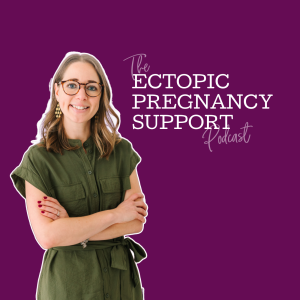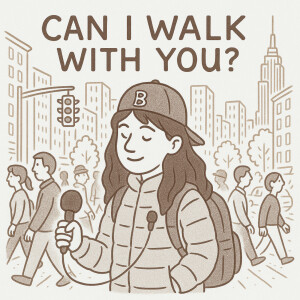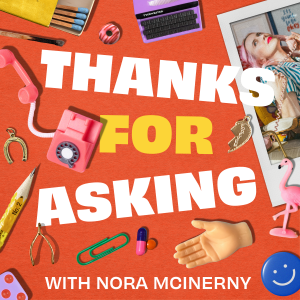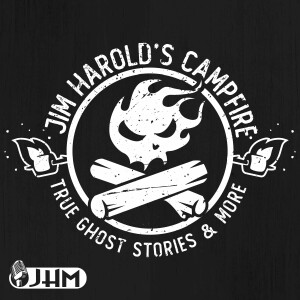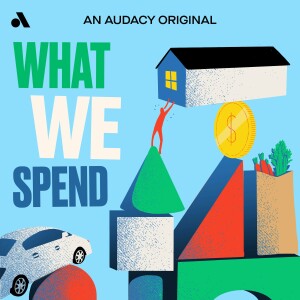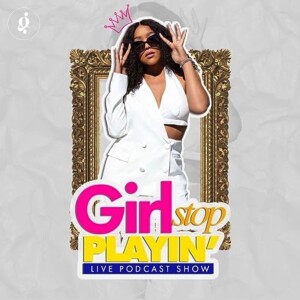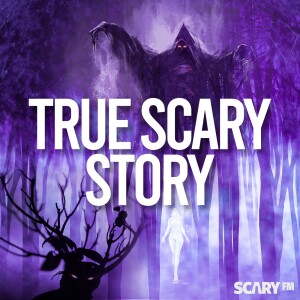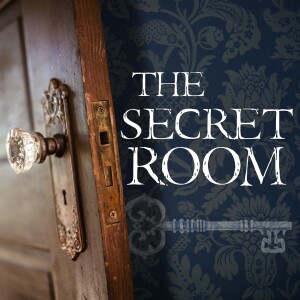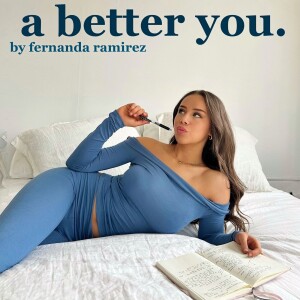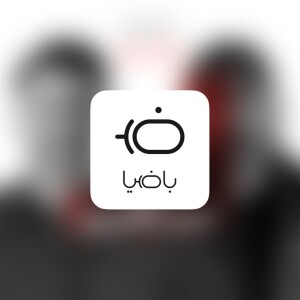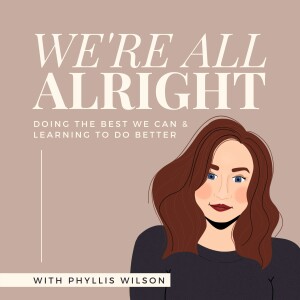

We're All Alright
https://feeds.transistor.fm/were-all-alrightEpisode List

Introducing We're All Alright
Every morning brings a new headline: violence, injustice, disease, suffering. It's a lot to take in, and if you're like me, you've probably started to dread the daily routine of scrolling through the news. I want to stay informed, engaged and present with the realities of our world today, but all of those headlines had me questioning just how much good was really left in humanity. Over the last year, I started to wonder what it would be like to live in a world where I didn't dread the day's news. What would it be like–despite so much evidence to the contrary–to see the best in people, instead of always anticipating their very worst?That's when I remembered the most beautiful lesson my dad ever taught me; something he said again and again, almost like a mantra: Everybody's just doing the best they can. That's the world that I want to live in. Where not only is everyone doing the best they can, but where their best makes the world a better place for others too.Let’s face it, that is not our world. Not yet.But if there's one thing I haven't lost faith in, it's our collective power to make things right.My name is Phyllis Wilson and this is We’re All Alright, the show that explores all the reasons we have to be hopeful–even joyful–about humanity and about our world today. My goal is to reconnect us with the humans at the heart of the issues, and from that place, explore deep and powerful questions about the world we share and how we think about it.So instead of feeling like all is lost, we start to wake up every morning and think, cool, we’re going to be alright.Learn More About Phyllis Wilson:Work With PhyllisInstagram: @Alright_Podcast

The (Mis)Education of... All of Us?
Ninety percent of the school-age population attend public schools. What would happen to these institutions if that number plunged significantly?Homeschooling, home-school collectives, free schoolers, unschoolers–alternatives to traditional public school models have been increasing in popularity over the last two decades, and the pandemic has seen even more families opt to school their children at home in some fashion.Education is a mirror for the concept of personal freedom and choice as a matter of fundamental rights. We tend to believe that education is what gives us–or is supposed to give us–choices. Your education influences the choices and opportunities available to you after you leave school.So it’s no wonder that it’s such a hot button issue.But if where and how children attend school is a matter of personal choice, what happens to the collective institutions and systems of public education that are designed to benefit us all?If families keep exiting the system, what will be left?Or is there a better way that feels more empowering to children and families? A way that feels like change is actually happening?In This Episode:A brief history of compulsory public schooling, from lofty ideals to economic engine and the grim realities of child laborAmerican homeschooling and its surprising ties to post-Civil War Black communitiesWho personal choice in education leaves behindImagining a way forwardResources For Doing Your Best:“Death by a Thousand Cuts: The Story of Privatizing Public Education in the USA,” Joanna Barkan“The Case for Choice in Schooling: Restoring Parental Control of Education,” Matthew J. BrouilletteLearning All The Time, John HoltDumbing Us Down: The Hidden Curriculum of Compulsory Schooling, John Taylor Gatto“The Radical Self-Reliance of Black Homeschooling,” Melinda D. AndersonJohn Holt, WikipediaDr. Raymond Moore, Moore FoundationLearn More About Phyllis Wilson:Work With PhyllisInstagram: @Alright_Podcast

How Should We Practice Justice?
Criminal justice, prison and police reform have become regular parts of our national conversation, especially since George Floyd’s murder and the pandemic continues to hit prisons hard.But what does justice mean? What does it mean in theory? And what has it meant in practice?Justice is a uniquely human experience and concept. And it’s also one we haven’t quite put our finger on defining, let alone enacting.Undertaking reform is a complex, epic challenge that requires us to answer the question of what justice should mean and how we put that into practice.In This Episode:How the US prison system was developed as a more humane alternative to corporal punishments like flogging or brandingWhy the post-emancipation Black Codes led to the disproportionate incarceration of formerly enslaved people, prison overcrowding and violenceHow restorative justice repairs harms by having all stakeholders invested in the processDefining justice in a framework of relationship and integration and other models of non-punitive justiceResources For Doing Your Best:RestorativeJustice.orgNational American Indian Court Judges Association on Holistic and Traditional JusticeDismantling the School to Prison PipelineNAACP’s Legal Defense & Education Fund"North Dakota Reforms its Prisons, Norwegian Style""North Dakota Partners with Prison Reform Initiative to Champion Healing, Restoration, and Fairness""CAHOOTS May Reduce the Likelihood of Police Violence""Examples Of Reimagining Police Departments That Show Promise"A Better Path Forward for Criminal JusticeThe Confession TapesThe Innocence FilesUnbelievable13thLearn More About Phyllis Wilson:Work With PhyllisInstagram: @Alright_Podcast

What Does Justice Mean in the Freedom of Truth Era?
Freedom of “personal choice” (and speech, and truth) is the Great Justifier on social media today, which for all intents and purposes means the world since so many of us by choice or necessity spend so much of our lives online.Personal choice–in schooling, in restorative justice–has been a theme of this podcast so far.Thinking about restorative justice especially, in this climate of “personal choice” raises more questions than it answers.It seems almost preposterous to consider whether restorative justice processes could play out successfully in our culture as it is.What does justice mean in this “freedom of truth” reality we’re living in?And if rules and laws are meant to support our responsibilities to each other–if we can even agree that is their purpose–then do we naturally create rules and laws?Which leads to the biggest question: Do humans have an innate sense of justice?In This Episode:How injustices have always been part of human history and civilizationsWhy a dissolution of civility matters, and why civility isn’t about being nice to each otherHow “personal freedom” is weaponized to deny harmHow the human ability to create narratives gives us more power than we think to enact changeResources For Doing Your Best:A refresher on Lord of the FliesThe real Lord of the Flies: what happened when six boys were shipwrecked for 15 monthsHumankind: A Hopeful History, Rutger BregmanLearn More About Phyllis Wilson:Work With PhyllisInstagram: @Alright_Podcast

The Power of Looking For The Good
Being hopeful is a practice.Maintaining the perspective that we’re all, each of us, doing the best we can, that there is reason to be hopeful about our world and joyful about the human experience can be empowering, both for ourselves and for others.But it’s a practice I remind myself of daily, even moment to moment. Especially in the presence of people with whom I deeply disagree.I still get angry. I feel rage. But I’m practicing and maybe you will (maybe you do!) too.Today, I’m joined by my producer, Sean McMullin to have a conversation about why I started this podcast and why I’m so passionate about the practice of hope, of believing that We’re All Alright.In This Episode:Why I needed a perspective shift to help me see our commonalitiesHow to use anger for transformationHow my dad’s common refrain influenced my outlook and inspired the podcastSimple ways to get back into the world when you’re feeling low or isolatedResources For Doing Your Best:WestknitsCountdown: Inspiration4 Mission to SpaceThe Innocence ProjectPlay 360Dan LevyLearn More About Sean McMullin:Yellow House MediaLearn More About Phyllis Wilson:Work With PhyllisInstagram: @Alright_Podcast
Create Your Podcast In Minutes
- Full-featured podcast site
- Unlimited storage and bandwidth
- Comprehensive podcast stats
- Distribute to Apple Podcasts, Spotify, and more
- Make money with your podcast
